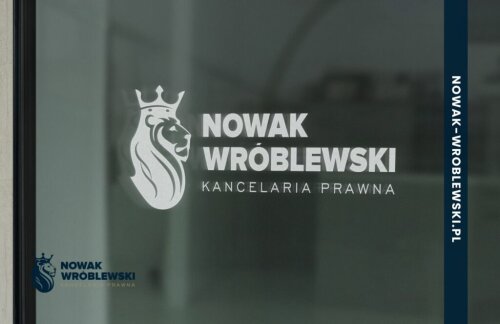Best Project Finance Lawyers in Poland
Share your needs with us, get contacted by law firms.
Free. Takes 2 min.
Or refine your search by selecting a city:
List of the best lawyers in Poland
About Project Finance Law in Poland
Project finance in Poland refers to the legal and financial structuring of large-scale projects, typically in sectors such as energy, infrastructure, transport, and public service delivery. It is distinguished by the use of project-specific entities and limited or non-recourse financing, where repayment is mainly derived from the project’s own cash flows. Project finance is crucial for both private sector investment and public-private partnerships (PPPs), enabling significant capital investments while managing risks among various stakeholders such as sponsors, lenders, contractors, and public authorities.
Why You May Need a Lawyer
A lawyer specialized in project finance is vital for navigating complex transactions and ensuring legal compliance throughout a project’s lifecycle. Common situations where legal assistance is indispensable include:
- Drafting and negotiating loan agreements, security documents, and contracts between parties
- Advising on regulatory requirements and obtaining necessary permits or authorizations
- Structuring public-private partnerships or joint ventures
- Identifying and allocating project risks among stakeholders
- Conducting legal due diligence on assets, properties, and project parties
- Managing disputes, claims, or restructurings associated with the project
- Protecting intellectual property and technological rights integrated into the project
Local Laws Overview
Project finance in Poland is governed by a combination of national legal regulations and, for EU-funded projects, EU law. Key legal frameworks include:
- Civil Code and Commercial Companies Code: Regulate contracts, obligations, and the formation of special purpose vehicles (SPVs) used in project finance structures
- Public Procurement Law: Governs the tender and contracting process for public projects, including PPP arrangements
- Banking Law: Addresses security interests and lending practices relevant to both domestic and foreign banks
- Construction Law and Environmental Regulations: Set out permitting, building, and ecological compliance requirements
- Energy Law: Relevant for projects in the power and renewables sectors
- Security Interests and Collateral Registry: The law specifies how lenders can secure their interests, including provisions for mortgages, pledges, and assignment of receivables
Poland also has specific rules on foreign investment control, anti-money laundering, and tax regulations that may impact project finance structures. Legal due diligence is essential to check compliance at all levels.
Frequently Asked Questions
What is project finance and how does it work in Poland?
Project finance is a method of funding large projects using a structure where the repayment of loans relies on the project’s cash flows, not the sponsor’s assets. In Poland, it often involves creating an SPV, which is legally and financially separate from the project sponsors.
Which sectors most often use project finance in Poland?
Common sectors include energy (especially renewables), infrastructure (such as roads, rail, and ports), real estate, waste management, and public-private partnerships in health or transport.
What type of security do lenders commonly require?
Lenders typically require pledges or mortgages over project assets, assignment of receivables and contracts, bank account pledges, and occasionally personal or corporate guarantees.
Are there restrictions on foreign investors or lenders in Polish project finance?
Poland is open to foreign investments, but some sectors, such as energy or strategic infrastructure, may be subject to foreign investment screening and additional regulatory scrutiny.
How important is a due diligence review?
Due diligence is vital to uncover legal, regulatory, and financial risks, validate project ownership and contract rights, and ensure compliance with local regulations.
What permits and approvals are needed?
Depending on the project, permits may include planning and zoning approvals, building permits, environmental clearances, and sector-specific licenses (for example, energy production licenses).
What is an SPV and why is it commonly used?
A Special Purpose Vehicle (SPV) is a company established solely to own and operate the project. It isolates risk and protects the sponsors’ other assets from project-related liabilities.
What happens if the project fails to perform?
If cash flows are insufficient to repay debts, lenders enforce their security, which may include taking control of project assets or proceeds. Legal mechanisms exist for restructuring or insolvency if needed.
What are the typical risks in Polish project finance?
Risks may include construction delays, regulatory changes, fluctuating revenues, currency risk, or counterparty defaults. Lawyers help allocate and mitigate these risks in project documentation.
How are disputes resolved in project finance deals?
Disputes are typically resolved through negotiation, but may proceed to arbitration or Polish courts depending on the contract terms. Many project finance contracts prefer international arbitration.
Additional Resources
Several resources and organizations can be of assistance for those seeking information or assistance in project finance in Poland:
- Polish Financial Supervision Authority (KNF) - For questions on financing and banking regulation
- Ministry of Infrastructure - Information on public-private partnerships and infrastructure regulations
- Ministry of Climate and Environment - Guidance on environmental permits and energy law
- National Chamber of Legal Advisers (KIRP) - Directory of qualified legal professionals
- Polish Bank Association - Guidance on lending practices and financial standards
- Entities managing EU funding in Poland - Information for projects involving European financing
Next Steps
If you believe your project or investment venture in Poland requires project finance, consider the following steps:
- Clearly define your project, its stakeholders, and funding requirements
- Consult with a specialized project finance lawyer to review your plans and identify legal risks
- Arrange for a legal due diligence review to evaluate the legal structure, assets, and contracts involved
- Work with experts to structure your transactions and draft all necessary agreements
- Obtain all required permits and regulatory approvals
- Ensure compliance with both local and EU regulations at every stage of the project
- Establish clear dispute resolution and risk management procedures in all agreements
- Consider continued legal support throughout the operational phase to adapt to regulatory or market changes
Taking early legal advice will help you anticipate and solve potential issues, negotiate effectively, and protect your business interests in the dynamic and complex environment of project finance in Poland.
Lawzana helps you find the best lawyers and law firms in Poland through a curated and pre-screened list of qualified legal professionals. Our platform offers rankings and detailed profiles of attorneys and law firms, allowing you to compare based on practice areas, including Project Finance, experience, and client feedback.
Each profile includes a description of the firm's areas of practice, client reviews, team members and partners, year of establishment, spoken languages, office locations, contact information, social media presence, and any published articles or resources. Most firms on our platform speak English and are experienced in both local and international legal matters.
Get a quote from top-rated law firms in Poland — quickly, securely, and without unnecessary hassle.
Disclaimer:
The information provided on this page is for general informational purposes only and does not constitute legal advice. While we strive to ensure the accuracy and relevance of the content, legal information may change over time, and interpretations of the law can vary. You should always consult with a qualified legal professional for advice specific to your situation.
We disclaim all liability for actions taken or not taken based on the content of this page. If you believe any information is incorrect or outdated, please contact us, and we will review and update it where appropriate.
Browse project finance law firms by city in Poland
Refine your search by selecting a city.
















